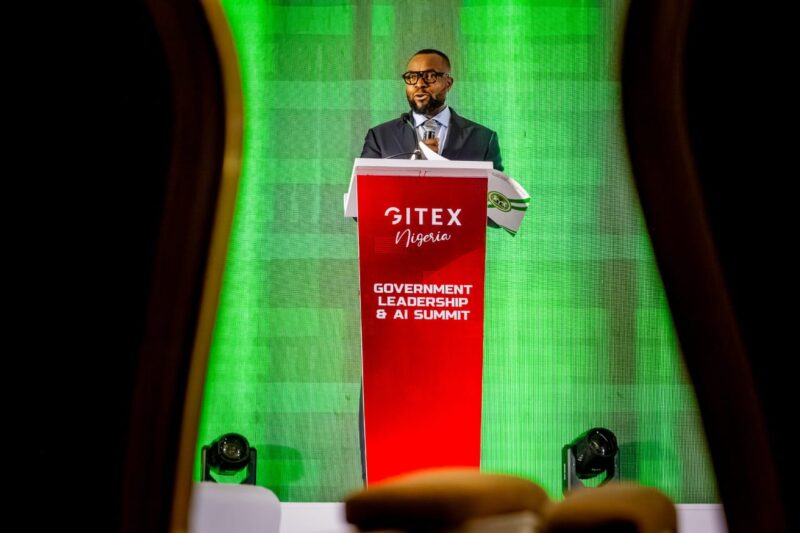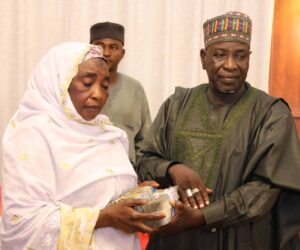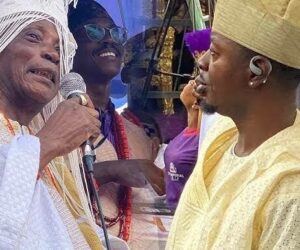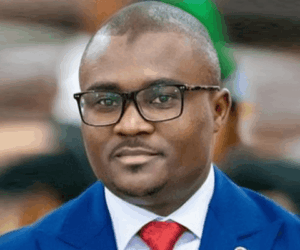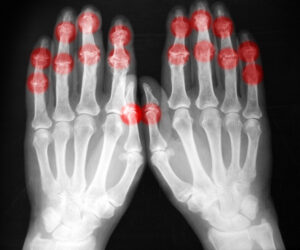The Nigerian government has sounded a clear warning that without a deliberate effort to build Artificial Intelligence (AI) that understands our unique cultures and languages, Africa’s rich heritage risks being wiped out in the digital future.
This urgent call to action was a major theme at the GITEX Nigeria Conference 2025 held in Abuja, where tech leaders stressed the need for the continent to develop its own Large Language Models (LLMs).
Kashifu Inuwa, the Director General of the National Information Technology Development Agency (NITDA), painted a vivid picture of the stakes involved.

Speaking to a packed audience, he explained that the AI tools currently dominating the world are trained on data that doesn’t reflect Africa’s diversity.
“Our languages, histories, and values must not be erased in the next wave of technological change,” Inuwa stated passionately. “We need African LLMs that can tell our stories and preserve our cultural heritage in the age of AI“.
In simple terms, the goal is to create AI that speaks our language. Not just English, but Yoruba, Igbo, Hausa, Pidgin, and the hundreds of others across the continent. It’s about building technology that understands our proverbs, our history, and our way of life, ensuring that the digital future includes African voices.
This isn’t just talk. The government is already putting its money where its mouth is.
Inuwa revealed that Nigeria has already provided funding to 45 startups specifically focused on AI to help drive this innovation. Also, under the leadership of the Minister of Communications, Innovation and Digital Economy, Dr. Bosun Tijani, the country is actively drafting a national AI strategy.


This policy is designed to create a framework that encourages innovation while making sure AI is adopted ethically and responsibly, potentially serving as a blueprint for other African nations.
“Lead, don’t follow”: The broader call for an AI revolution
Beyond the cultural imperative, the message from the GITEX conference was one of economic survival and ambition.
Both Inuwa and Dr. Tijani insisted that Africa cannot afford to be a mere consumer in this Fourth Industrial Revolution, as it was in the past. “Any country left behind in this AI revolution risks catastrophe, while those who lead will shape the world,” Inuwa declared.
The economic potential is staggering. Citing research from Epoch AI, the NITDA DG noted that AI adoption could boost global economic growth by 20% and potentially double the world’s economy in just five years.
For Africa, this presents a golden opportunity to “leapfrog traditional development pathways and secure a strong position in the global digital economy“.
Dr. Tijani echoed this urgency, warning that an “AI productivity gap” is already widening between nations. He pointed out that while other countries are seeing massive gains in agriculture, finance, and logistics by using AI, many African economies are still reliant on “guesswork and outdated practices“.
To avoid being left behind, Inuwa outlined a four-point plan for the continent:
- Develop human capital: Leverage Africa’s youth through massive training programs like Nigeria’s 3 Million Tech Talent (3MTT) initiative.
- Build infrastructure: Invest in data centres and high-performance computing to process African data locally and protect data sovereignty.
- Create strong policies: Develop national AI strategies that encourage innovation and ethical use.
- Foster an enabling ecosystem: Support startups, research institutions, and partnerships with global tech giants.
The conference also featured a global perspective from Trixie LohMirmand, the Executive Vice President of the Dubai World Trade Centre (DWTC).


She praised Nigeria’s potential, stating that the nation is defined not by current challenges but by “the scale of opportunities of tomorrow“. She affirmed that GITEX is committed to providing a platform for Nigerian innovators to access global partnerships and “claim its seat at the global digital table“.
The final message was one of unity and immediate action. “The Fourth Industrial Revolution is not a spectator sport,” Inuwa concluded. “It is a global contest of ideas, infrastructure, and innovation. Africa must compete, and the only way to compete is together“.

